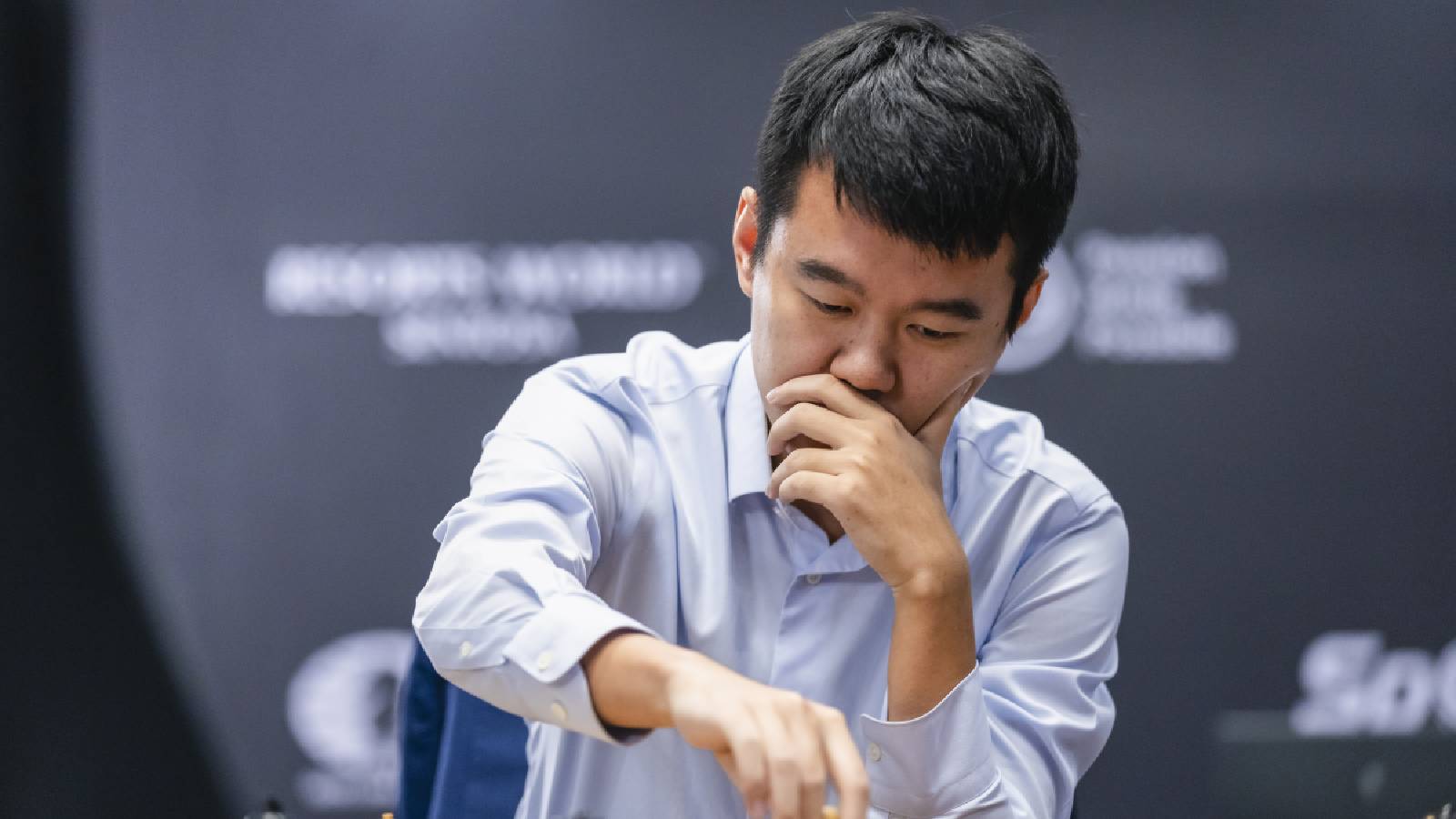It was a move so wrong that even Gukesh cupped his hands over his lips. He then gawked at the board, possibly wondering if his eyes were trying to trick him. Was it a mirage? He covered his eyes briefly with his palms, the universal sign for disbelief.
The Indian leaned in for a closer look, trying to find if there was a trap somewhere. Games at the world championship are not won — or lost — this easily! Championship-deciding games are definitely not decided by one-move blunders.
As it started to become apparent that his opponent Ding Liren had indeed blundered on the board, Gukesh seemed to be suddenly very conscious of his breathing. He had time, an hour and six minutes on his clock, compared to his opponent’s nine minutes and 43 seconds.
The Indian teenager looked away, and took a gulp of water. Across the board, the world champion had just been struck by what he had done. A one-move blunder to surrender the game, match and crown.
“I was totally in shock when I realised I had made a blunder. His facial expression told me that he was very happy and very excited. That’s when I realised I had made a blunder. It took me some time to realise it,” narrated Ding at the subsequent press conference. “It was not as dead a draw as yesterday. He had a bishop on the board. He also had a rook, so it was more tricky. I could have done better, but considering my lucky escape in yesterday’s game, it’s fair that I lost in the end. I have no regrets.”
Ding’s predecessor Magnus Carlsen had abdicated the throne without a single pawn being moved. In contrast, the Chinese champion fought tooth and nail to stay in the fray for 14 games. And just when it looked like he had forced the matter into the tie-breaks where he was supposed to have an advantage, he blew it up with one reckless move: 55.Rf2.
Here’s what that reckless rook withdrawal had done: in moving his rook from f4 to f2, Ding had offered it up to Gukesh for an exchange. Gukesh’s own rook, stationed on b2, would sweep in and capture it. Then Ding would recapture the piece with his own king. No harm done there.
Blunder
But here it would get treacherous for Ding. His remaining bishop, the only piece that could do anything significant on the board, was standing by itself in a corner on a8. After the rooks went off the board, Gukesh would simply have to place his bishop on a diagonal where Ding would have no option but to trade the bishops as well, because it was in a corner where the only path went through Gukesh’s bishop.
Once the bishops followed the rooks off the board, Ding would be left with just one pawn and the king. Gukesh, meanwhile, had two pawns and the king, which would escort the pawns to the end line, where they would be promoted to queens. Checkmate was unavoidable.
“When he played rook to f2, I did not realise (that there was a win on the board). I was almost going to play rook to b3. But when I realised it, it was probably the best moment of my life,” smiled an emotional Gukesh.
In the past too, the world chess championship has been decided by a single mistake on the board.
In 1985, Garry Kasparov was fighting Anatoly Karpov to become the youngest world champion in history when the duo was playing its final game. The previous year too, they had battled for over five months without anyone winning, before the match was eventually called off.
This time, there was a set number of games. Kasparov was ahead by a point against Karpov, who needed to win the final game with white pieces.
Karpov went on an all-out attack in his first 20 moves before eventually coming to a point where he needed to make a big decision: he needed to choose whether he should push a pawn ahead on the kingside.
He decided against it. Kasparov later said his opponent’s move had given him confidence to stop defending and go on the attack himself.
That one push that never happened gave the world its youngest world champion in 1985. Nearly 40 years later, a rook withdrawal has given the world an even younger one.
Why should you buy our Subscription?
You want to be the smartest in the room.
You want access to our award-winning journalism.
You don’t want to be misled and misinformed.
Choose your subscription package


